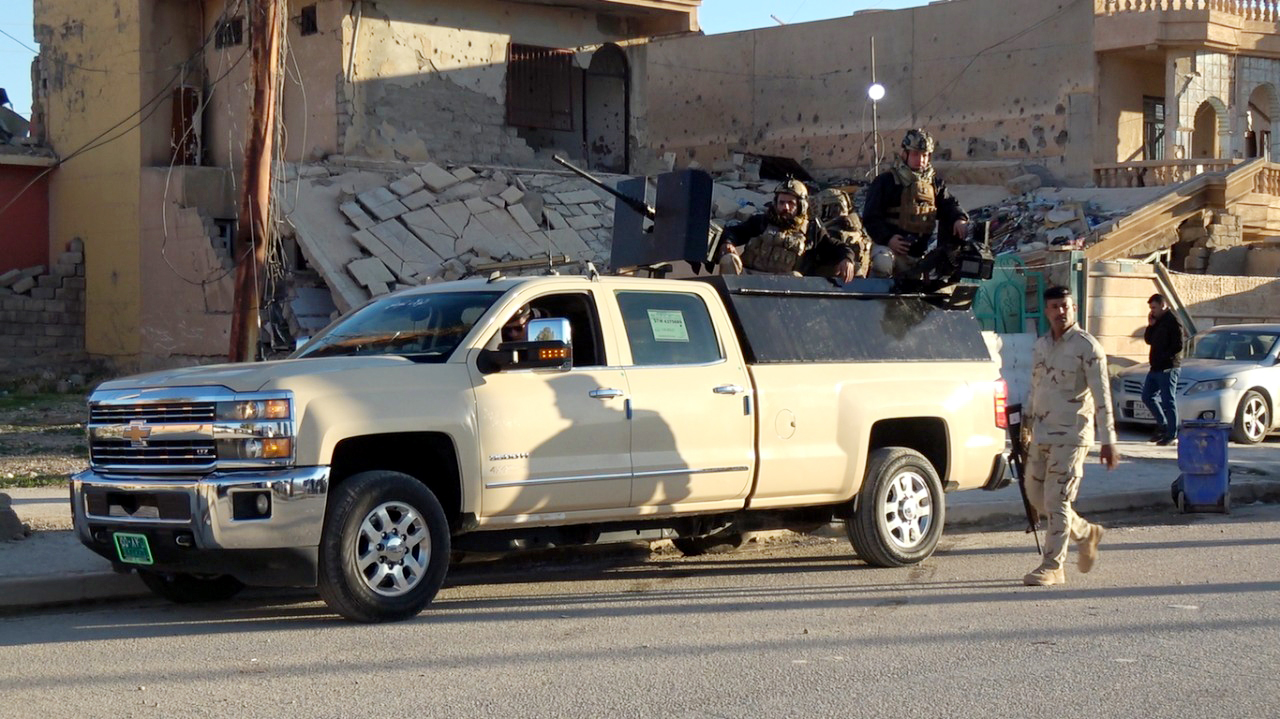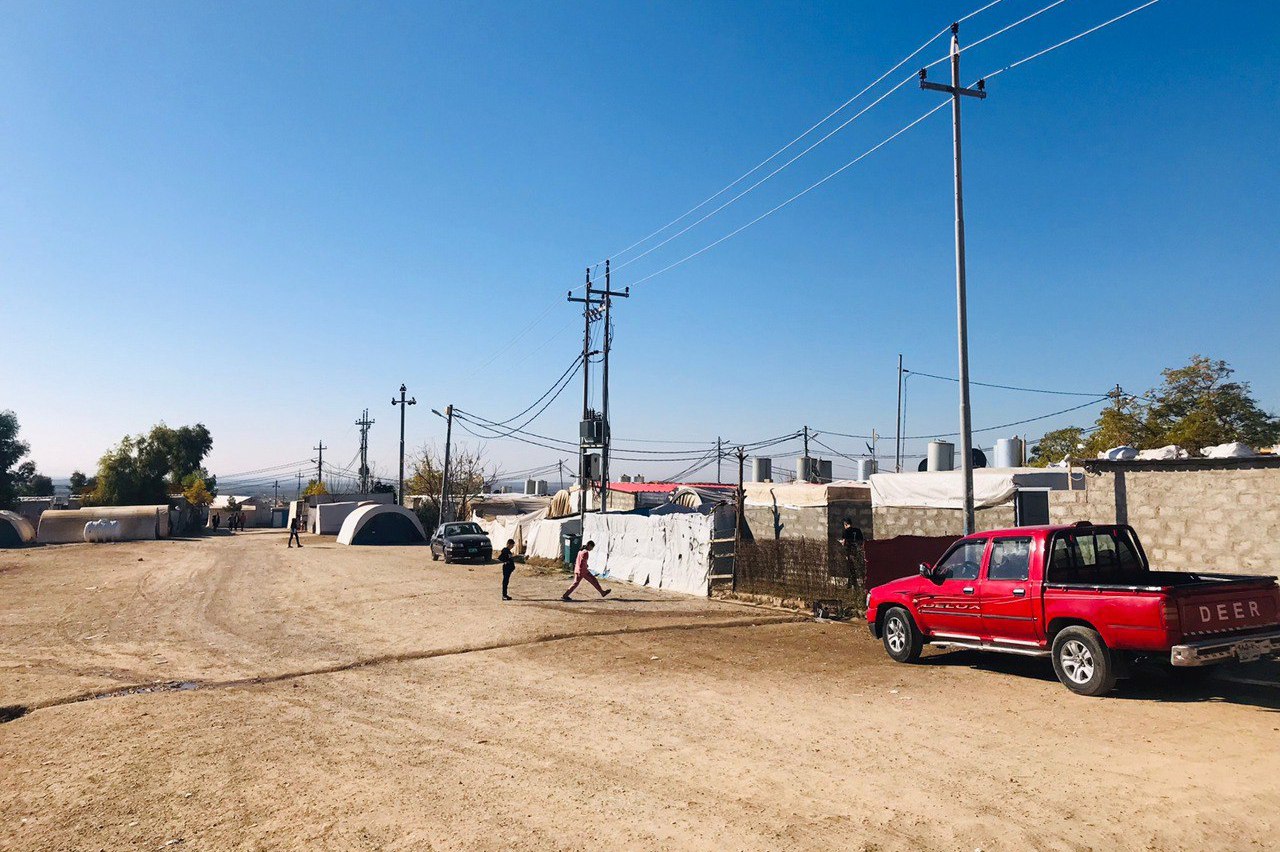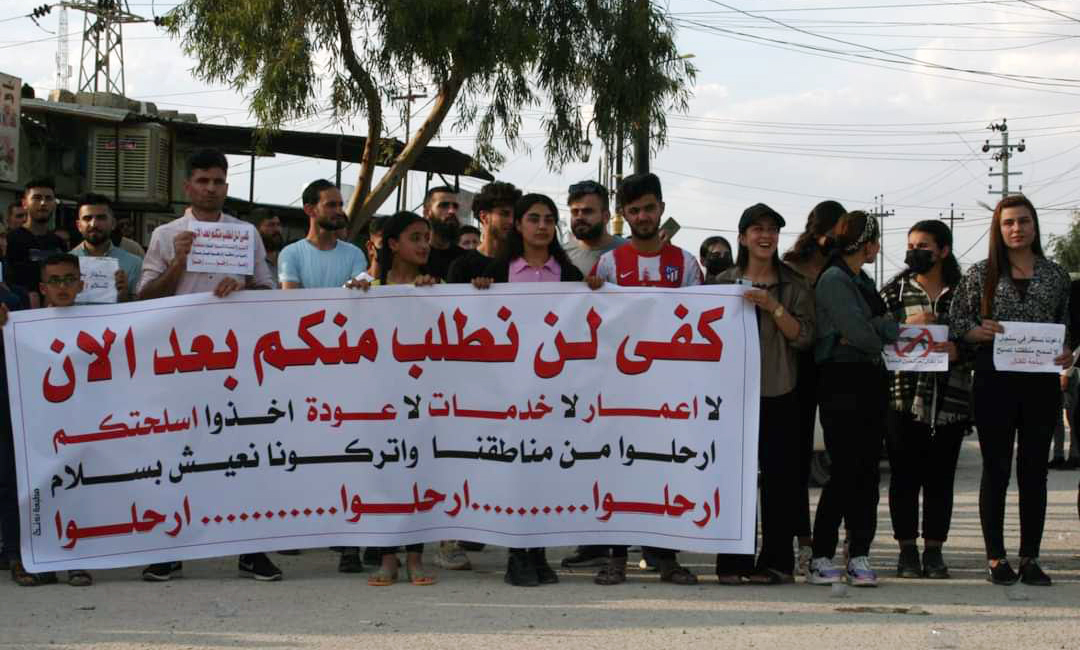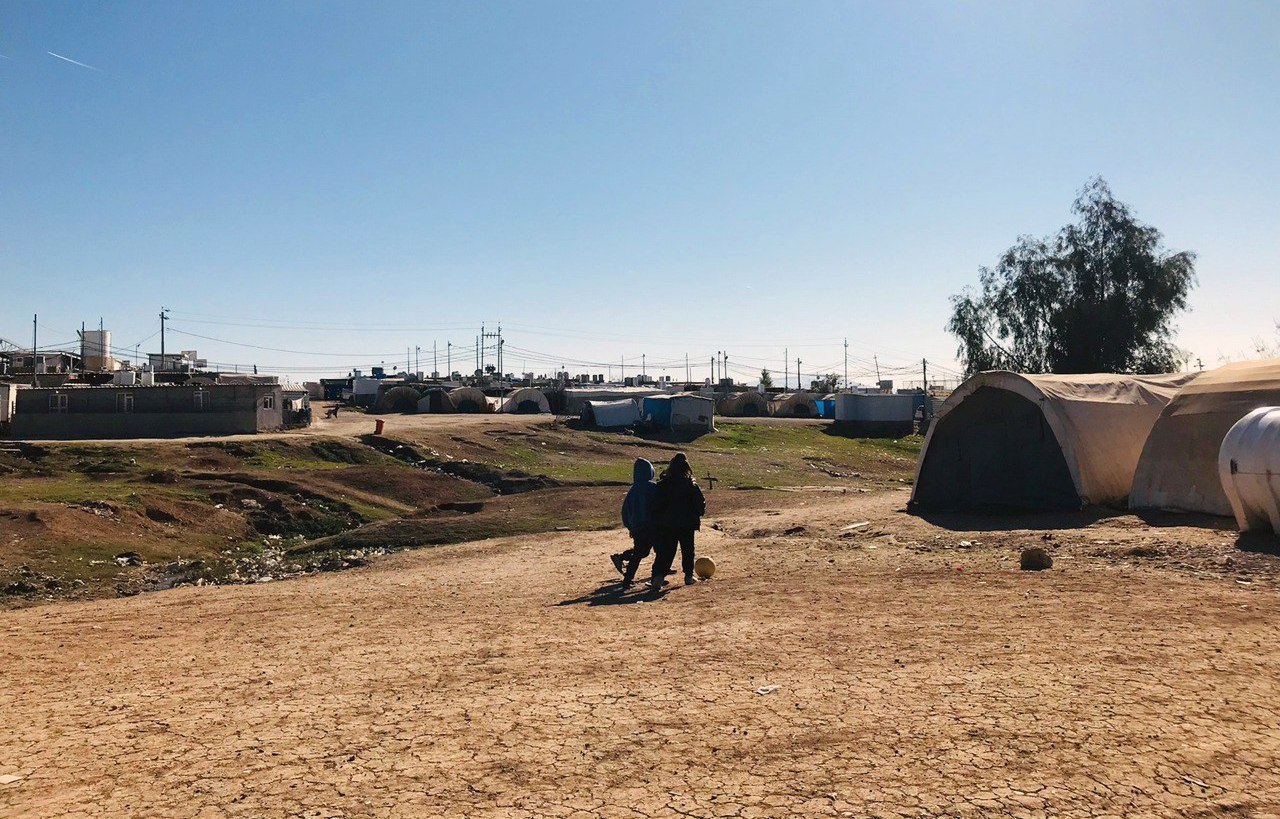People of Shingal (Sinjar) who left whom following the emergence of the extremist militants of the Islamic State of Iraq and Syria ISIS in 2014 and currently living under tents in camps for internally displaced Persons IDP are willing to return to their homeland on several conditions, including security, stability and compensation, in response to Iraqi government’s plan to shut all the IDP camps within six months, which administrative and local officials find it difficult to achieve.
According to the agenda of the new Iraqi federal government cabinet chaired by Mohammed Shia Sudani, which received parliamentary confidence at the end of October, all IDPs must be returned within six months, including more than a million citizens who are still displaced, according to the figures by the International Organization for Migration (IOM).
In the latest press conference, on December 29, 2022, Ivan Gabro, Minister of Migration and the displaced stressed that " the IDP case in Iraq will be completed in six months according to the government's program.”
The situation in Shingal is very bad. The lack of services and the presence of forces in the city are obstacles to our return
There are more than 600,000 IDPs in the Kurdistan Region alone, according to official statistics, some of whom are living in 26 IDP camps.
“We are ready to return to Shingal, but the situation in is very bad there. The lack of services and the presence of armed forces in the city are obstacles to our return,” Bafre Ali Bashar, 24, an IDP from Shingal, told KirkukNow.
In May 2022, thousands of families were displaced again due to armed clashes in Shingal district of Ninewa province, home to the Ezidi non-Muslim community. There are more than eight different armed forces in Shingal, some of which are part of the Western Ninewa Operations Command, the main is the army.

Bafre, a resident of Dugre community in Shingal, demands compensation and services so that they can return.
“We want to get rid of camp life, but if the situation is not calm, we prefer to live in displacement.”
According to KirkukNow, the demands and conditions of the IDPs for return are somewhat similar and the main ones are compensation for war damage, providing services, a unified local administration, maintaining stability, determining the fate of the missing and resolving the issue of administration of their areas.
“If the Iraqi government wants to work for Shingal, people will return in less than six months, but I don't think the necessary steps will be taken within that period, although 99% of the IDPs want to return,” said Daud Zindini, 36, resident of Kabartw IDP camp in DUhok, originally from Gir user compound of Shingal.
There are more than 65,000 displaced families in Duhok province; About 27,000 of them were settled in 16 camps.
It is very difficult to return the IDPs to their homes in six months
"Before taking any step, we demand the return of the captives and kidnapped people. We want to form a special force from the people of Shingal to protect the district and compensate the people so that everyone can return," Zindini said.
Shingal (120 km west of Mosul), a disputed area in Ninewa province, was captured by ISIS on August 3, 2014, and thousands of people were killed, kidnapped and displaced until it was captured on November 13, 2015.
“It is very difficult to return the IDPs to their homes in six months, while the situation in Shingal is complicated and 90% of the IDPs cannot return because their houses have not been repaired and rebuilt yet,” said Nayif Saydo, commissioner of Shingal.
“There are foreign planes flying over the district, causing fear among the people,” in reference to airstrikes by Turkey against militants of armed groups deployed in Shingal, affiliated to outlawed Kurdistan Workers Party PKK.

There are two administrations in Shingal; One works in Duhok Northern Province under the Kurdistan Regional Government KRG and the other in the center of the district, except for the self-governing council, which is considered close to the PKK.
Naif says no preparations have been made for the return of the IDPs and the Iraqi government must compensate the people to resume normal life in their hometowns.
The implementation of Shingal agreement signed in 2020 between the federal government and the KRG to reorganize the administration, security and services, but has not been implemented yet.
“All the people of Shingal are ready to return, but they cannot because of the armed forces and the destruction of the war in their areas,” said Talal Haskani, 34, whose house has collapsed because of the war against ISIS.
“Therefore, we demand the implementation of the Shingal agreement and compensation,” Haskani told KirkukNow.
We have no mechanism for the return of the IDPs
The Iraqi government lifted security inspection lately to encourage IDPs to return and at the end of last year decided to register residential units and houses in Shingal district, which will benefit about 50,000 families.
"It is true that there is a program to return the IDPs in six months, but the important thing is when it will be implemented, because we have no mechanism for the return of the IDPs," said Iskandar Mohammed Amin, director of Duhok Migration under the Iraqi government, told KirkukNow.
According to a report published in December 2022, the Iraqi Ministry of Migration, within the framework of a program with the KRG, to end the IDP case and close the camps, without giving further details.
"We cannot force people to return. Every IDP is free to return or not. People will not return without compensation. The implementation of the agreement between the Iraqi and Kurdistan Regional Governments can encourage the IDPs to return," he said.

Except for Ninewa, all camps in other provinces under the control of the Iraqi government have been closed and their residents have been returned to their homes.
“It is very difficult for the IDPs to return within the stipulated time because there is no peace in Shingal and the Kurdistan Regional Government is not forcing anyone to return,” Dian Pir Jaafar, head of the KRG's Duhok Migration and IDPs Office, said.
“Everyone is free to stay or return, it is our duty to serve them,” he said, adding that there is good coordination between the new Iraqi government and the Kurdistan Region.
Jaafar hopes to work with the Baghdad government to implement the Shingal agreement and try to provide the needs of the IDPs, as the IDP aid organizations have expired their contracts.
According to previous investigations KirkukNow, the IDPs in the camp live in "bad" conditions, as hundreds of families suffer from lack of aid, lack of drinking water and poor food distributed by the Iraqi government, in addition to the harsh winter cold and the risk of fires in the summer.
Six million people were displaced in Iraq and the Kurdistan Region in 2014-2017 due to the war against ISIS, about five million of them have returned home.






